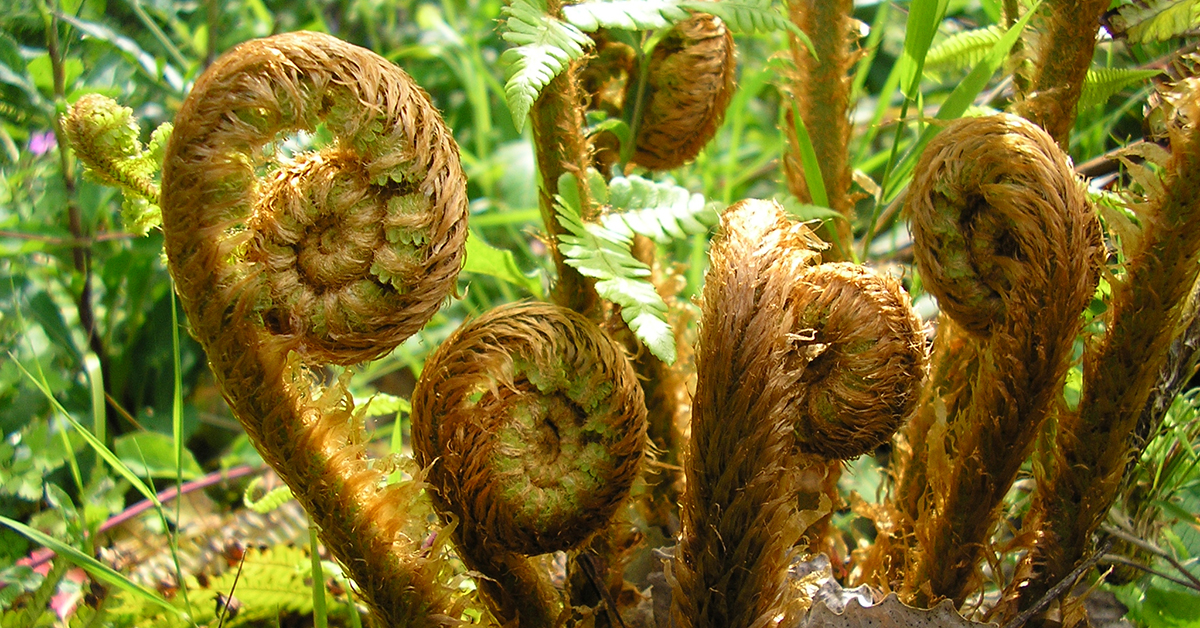Basque ethnography at a glance
In this third post of a three-part series [See The months of the year in Basque (1) and The months of the year in Basque (2)] we place our focus and attention on the last four months of the year.
Irail ‘September’. This is the ‘month or moon of the fern’, from ira ‘fern’ + (h)il ‘month or moon’, also called garoil in some places, from garo, synonym of ira. We have another remarkable and rather controversial name for this month, which is buruil, a diversity of opinions having been generated around it. Curiously enough, its first component buru could mean ‘head or start’ but also ‘finish or end’, and accordingly, some researches, Vinson among others, defend that September would once upon a time have been the first month of the Basque agricultural calendar, whereas others, such as Wagner, Campión or Caro Baroja himself, argue that it would have been the last. In an attempt to come to terms with such divergent interpretations, we shall us paraphrase Caro Baroja: “it is clear that some months would, at first, not correspond exactly to current Latin ones”.
Urri ‘October’. This name of apparent transparent etymology, along with the variants urril and urrieta, which Astarloa interpreted as ‘month of scarcity’, turns out to be more opaque than it seems and its meaning remains uncertain. However, our language features a clearer, yet rather unknown, name: bildil, which Caro Baroja interprets as ‘month or moon for harvesting’.
Azaro ‘November’. The OEH gives its etymology, from (h)azi ‘seed’ + aro ‘favourable time or season’. Both the variant azil, which Caro Baroja translates as ‘moon or month of the seed’, and the Latinate form zemendi (from medieval Latin sementia, and this from semen), as well as the hybrid zemendil, point in the same direction. But there is another form of a markedly agricultural nature, though not so widely known: gorotzil ‘month or moon of the manure’.
Abendu ‘December’. We end the year of our current calendar with this month of Latin etymology, coming from adventus, from the verb advenire ‘come’, referring to the arrival of Christ. But as in many other cases, we have two other precious words to designate December. One is lotazil, which following Caro Baroja would mean ‘month in which the seed germinates or takes root’, and the other neguil ‘winter month or moon’.
We have come this far in this wonderful linguistic-ethnographic journey through the diachrony of our language. And we shall end with a mention to Caro Baroja, whose work Sobre la religión antigua y el calendario del pueblo vasco [On the ancient religion and the calendar of the Basque people] we have so taken into account in this publication. Let us, by way of conclusion, recover some of his words: “at the very least, the originally primitive and formerly agricultural lunar character of the Basque calendar lives on”. It is now up to us all to keep this treasure alive!
Joseba Santxo Uriarte – Philologist and researcher
Translated by Jaione Bilbao – Ethnography Department – Labayru Fundazioa
A previous post dedicated to The days of the week in Basque might likewise be of interest.


